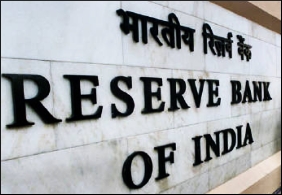|
|
|

|
Co-op banks come under RBI as President clears ordinance
|
|

|
|
| Top Stories |
 |
|
|
|
SME Times News Bureau | 27 Jun, 2020
The Centre has brought urban and multi-state cooperative banks under the
direct supervision of the Reserve Bank with President Ram Nath Kovind
promulgating the Banking Regulation (Amendment) Ordinance, 2020.
The
government had issued ordinance to operationalise new provisions of the
Act quickly in the interest of millions of depositors who use the
cooperative channel to undertake banking transactions including making
deposit of their hard earned money.
In the absence of sound
regulation offered by the RBI, cooperatives were prone to mishandling of
depositors' money. A case in point is the last year's PMC scam.
"In
pursuance of the commitment to ensure safety of depositors across
banks, the President has promulgated the Banking Regulation (Amendment)
Ordinance, 2020," a finance ministry statement said on Saturday.
"The
Ordinance seeks to protect the interests of depositors and strengthen
cooperative banks by improving governance and oversight by extending
powers already available with RBI in respect of other banks to
Co-operative Banks as well for sound banking regulation, and by ensuring
professionalism and enabling their access to capital," the statement
added.
The amendments to Banking Regulation Act, 1949 does not
affect existing powers of the State Registrars of Co-operative Societies
under state co-operative laws. It will also not apply to Primary
Agricultural Credit Societies (PACS) or co-operative societies whose
principal business is long-term finance for agricultural development,
and which do not use the word "bank" or "banker" or "banking" and do not
act as drawees of cheques.
"Given the increased instances of
corporate governance lapses and the heightened concerns on the safety of
the retail deposits in co-operative banks, we believe that bringing the
sector under complete RBI regulation at par with other scheduled
commercial banks will go a long way in improving its health and
operating practices," said Suman Chowdhury, Chief Analytical Officer,
Acuite Ratings & Research.
The ordinance will bring 1,482
urban and 58 multi state cooperative banks having over 8 crore
depositors and estimated deposits of Rs 4.84 lakh crore under the
supervisory powers of RBI. Since this sector had been under dual
regulation involving the Registrar of Co-operatives, RBI didn't have
adequate jurisdiction over these banks.
The Ordinance also amends
Section 45 of the BRA, to enable making of a scheme of reconstruction
or amalgamation of a banking company for protecting the interest of the
public, depositors and the banking system and for securing its proper
management, even without making an order of moratorium, so as to avoid
disruption of the financial system.
"It will also provide comfort
to the depositors who have partly or fully lost their deposits in the
past and stablise the deposit flows in these banks. Some of them may
need to raise capital from their members to mitigate their asset quality
risks and further, a consolidation in this space may get a momentum
involving the merger of weaker banks into stronger ones," Chowdhury
said.
In February, the BRA was amended to give RBI more
regulatory powers over cooperative banks. However, these amendments
failed to be passed through the Budget session due to Covid-19 outbreak.
Currently, RBI can not audit or give its consent for the appointment of the bank's CEO, without these new powers.
|
|
|
| |
|
|
|
|
|
|
|
|
|
|
|
|
|
|
| |
| Customs Exchange Rates |
| Currency |
Import |
Export |
US Dollar
|
₹88.70
|
₹87 |
UK Pound
|
₹119.90
|
₹116 |
Euro
|
₹104.25
|
₹100.65 |
| Japanese
Yen |
₹59.20 |
₹57.30 |
| As on 30 Oct, 2025 |
|
|
| Daily Poll |
 |
 |
| Who do you think will benefit more from the India - UK FTA in the long run?
|
|
|
|
|
|
| Commented Stories |
 |
|
|
|
|
|
| |
|